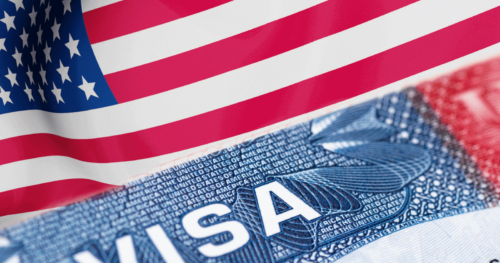Rama Krishna Sangem
The United States on December 19 Tuesday announced changes to the H-1B visa programme, including the final H-1B modernisation rule that redefines who qualifies as an ’employer.’
One of the key updates allows entrepreneurs to apply for an H-1B visa through their own businesses. This means that individuals can self-sponsor, provided they meet the eligibility criteria for the visa, such as having specialised knowledge.
“This change is promising for the growing number of Indian startups and innovators looking to access the US market,” said Varun Singh, Managing Director at XIPHIAS Immigration.
Opportunities for Indian entrepreneurs
Under the revised rules, an Indian entrepreneur establishing a tech company in the US can now be both an employer and a visa beneficiary. Singh explained, “For example, an Indian entrepreneur who starts a tech startup in the US can now apply for an H-1B visa through their own company, provided they meet the usual qualifications such as the need for specialised skills.”
Challenges with the existing system: Entrepreneurs currently face hurdles, including: Dependence on employer sponsorship. Even immigrants like Elon Musk, who is now the world’s richest man, had to rely on other companies willing to sponsor their H-1B visa applications. Limited pathways for startup founders
Until now, entrepreneurs were not considered eligible for H-1B visas unless they could demonstrate employment with a sponsoring organisation, making it difficult for them to launch ventures independently.
Most entrepreneurs entering the US on an H-1B visa often spend years working for an employer while waiting for a green card, which is necessary to start their businesses. For Indian applicants, the wait for an employment-based green card can stretch to decades.
In a statement, the US Department of Homeland Security (DHS) said, “If more entrepreneurs are able to obtain H1-B status to develop their business enterprise, the US could benefit from the creation of jobs, new industries, and new opportunities.”
How does it compare to EB-5?
The reforms also bring into focus the differences between the H-1B visa and the EB-5 Immigrant Investor Programme.
“While the H-1B modernisation rule offers new opportunities for skilled Indian entrepreneurs, it differs from the EB-5 Immigrant Investor Programme in several key ways,” said Singh.
“The EB-5 programme provides a pathway to US permanent residency (green card) for foreign investors who invest a minimum of $800,000 (approximately Rs 6.8 crore) in a US business. In contrast, the H-1B visa is a temporary work visa allowing skilled professionals to work in the US with specialised knowledge.”


